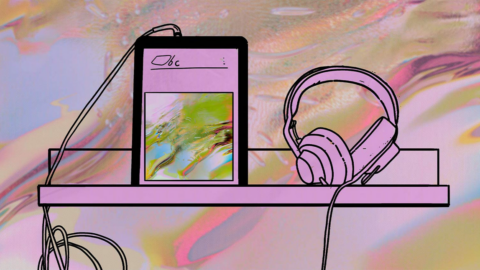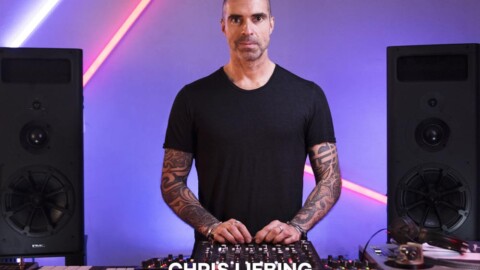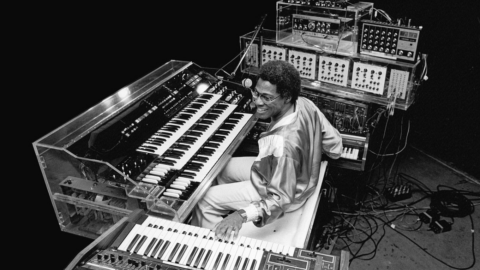Electronic music, once confined to the realm of underground clubs and raving parties, is now making its way into an entirely new arena: mental health therapy. As a genre known for its otherworldly beats and innovative use of technology, electronic music is emerging as a potential tool for mental health improvement and recovery. This fascinating intersection of sound and psychology is currently gaining attention from therapists, researchers, and DJs alike.
Exploring the Intersection of Electronic Music and Mental Health
It’s no secret that music has long been associated with emotional expression and catharsis. From lullabies soothing infants to sleep and tribal drumming inducing trance states to symphonies eliciting profound emotional responses, music’s impact on our mental state is profound. But what of electronic music – a genre characterized by synthesized sounds and digital manipulations? The very nature of electronic music’s composition allows for an infinite range of tones, frequencies, and rhythms. This, in turn, opens up a world of possibilities for targeting specific mental health issues.
The genre of electronic music encompasses a vast array of sub-genres, each offering unique benefits when used in mental health therapy. Ambient music, for example, is known for its soothing qualities and can reduce anxiety and stress. Techno, on the other hand, with its steady, repetitive beats, can facilitate a meditative state, boosting mindfulness and focus. Even the vibrant, uplifting chords of house music can foster a sense of joy and positivity.
Electronic music’s versatility extends beyond its varied genres. It can be custom-tailored to an individual’s preferences or therapeutic needs, thanks to digital technology. This malleability allows therapists to create unique auditory experiences that cater to individual patients, making electronic music a highly personalized therapeutic tool.
Digital music creation platforms have also made electronic music accessible to everyone, providing a new therapeutic outlet. Individuals can create their own compositions, thus actively participating in their therapeutic journey. This form of active engagement can enhance feelings of control and self-efficacy, key components in mental health recovery.
Moreover, the universal language of electronic music transcends cultural and linguistic boundaries, making it a potentially inclusive mental health intervention. After all, you don’t need to understand lyrics to feel the emotion in a piece of music. This quality can make electronic music therapy appealing and accessible to a diverse range of individuals.
The Therapeutic Potential of Electronic Music
Research into music therapy has shown that it can reduce symptoms of depression, anxiety, and even schizophrenia. Electronic music, with its varied beats, frequencies, and intensive sound scapes, might have an even greater potential for therapeutic use. It offers a unique opportunity to tune into our emotions and thought patterns, providing a platform for self-reflection and emotional release.
The auditory stimuli of electronic music can also induce physiological responses that impact mental health. It can influence heart rate, hormones, and brainwave activity – all of which are linked to stress management and emotional well-being. With its broad spectrum of frequencies, electronic music can access brainwave states that foster relaxation, concentration, and creativity.
Electronic music enables the exploration of altered states of consciousness without the use of drugs or substances. Some electronic music, like trance, aims to induce a state of flow, a psychological state associated with increased happiness and reduced anxiety.
The interactive and immersive nature of electronic music also plays a significant role in its therapeutic potential. The process of creating electronic music stimulates the brain, fostering a sense of accomplishment and boosting self-esteem. For those struggling with mental health issues, this can be a powerful tool for recovery.
Electronic music therapy can also serve as a social tool. Collaborative music creation and shared listening experiences can foster connections between individuals, enhancing feelings of belonging and reducing feelings of isolation – a significant benefit considering the strong link between social connection and mental health.
Finally, electronic music can serve as a positive distraction, drawing attention away from distressing thoughts or feelings and fostering a more positive mental state. As such, it may be particularly beneficial for those with conditions characterized by intrusive thoughts, such as PTSD or OCD.
Case Studies: Electronic Music as a Mental Health Aid
The use of electronic music as a mental health aid is more than a theoretical concept; it’s already being put into practice with promising results. For instance, in a 2013 study published in the Journal of Psychiatric and Mental Health Nursing, techno music was used as part of a therapy regime for patients with schizophrenia. The rhythmic beats and repetitive patterns helped reduce auditory hallucinations and enhance social functioning.
Another study, published in the International Journal of Qualitative Studies on Health and Well-being, found that using electronic music-making software had a positive impact on young people’s mental health. Participants reported feelings of joy, confidence, and relaxation and showed improved social skills and emotional expression.
The British charity ‘Nordoff Robbins’ uses electronic music therapy to help individuals with autism enhance their communication and social skills. By using electronic music’s range of sounds and rhythms, the therapists can tap into non-verbal forms of communication, proving particularly beneficial for those with limited verbal skills.
In Spain, a group of therapists has been using electronic music therapy to help refugees and migrants deal with traumatic experiences. Through creating and sharing electronic music, the participants were able to express their emotions and experiences, fostering a sense of solidarity and reducing feelings of isolation.
The ‘Mind Music’ project in the UK uses electronic music production to support individuals with mental health issues. Participants collaborate to create electronic music, enhancing their technical skills while boosting their self-esteem and fostering a community spirit.
Similarly, the ‘SoundMind Project’ in the USA uses electronic music as a form of therapy for veterans diagnosed with PTSD. Through creating electronic music, the veterans are able to cope with their traumatic experiences, improving their mental well-being and quality of life.
Future Directions in Electronic Music Therapy
The use of electronic music in mental health therapy is still in its infancy, but the potential it offers is immense. As technology continues to advance, so too will the possibilities within electronic music therapy. Virtual reality, for example, could provide immersive therapeutic experiences, combining visual and auditory stimuli to enhance the therapeutic impact.
Research into the effects of different frequencies and rhythms on brain activity will further refine the use of electronic music in therapy. This could lead to the development of customized electronic music therapy programs, tailored to an individual’s unique mental health needs.
As electronic music becomes more mainstream, its use in therapy is likely to become more accepted and widespread. This will open up opportunities for cross-disciplinary collaborations between music therapists, DJs, producers, and mental health professionals, fostering innovation in the field.
The incorporation of electronic music therapy into formalized mental health treatment plans could also be a future development. It could be used in conjunction with other traditional therapies, or as a standalone treatment for certain conditions.
As the stigma surrounding mental health continues to decline, more individuals may turn to creative outlets like electronic music for therapeutic purposes. This could lead to a rise in community-based electronic music therapy initiatives, fostering social connection and community well-being.
Finally, electronic music therapy could become a global mental health solution, transcending cultural and linguistic barriers to provide inclusive, accessible mental health care.
In conclusion, the innovative union of electronic music and mental health therapy is an exciting development with significant potential. While further research is needed to fully understand and harness this potential, the current findings are promising. Electronic music offers a unique, personalized, and immersive therapeutic experience, providing a new tune in the symphony of mental health therapies. It seems that electronic music, once the soundtrack of nightclubs and raves, may soon be playing a healing beat in therapy rooms worldwide.












